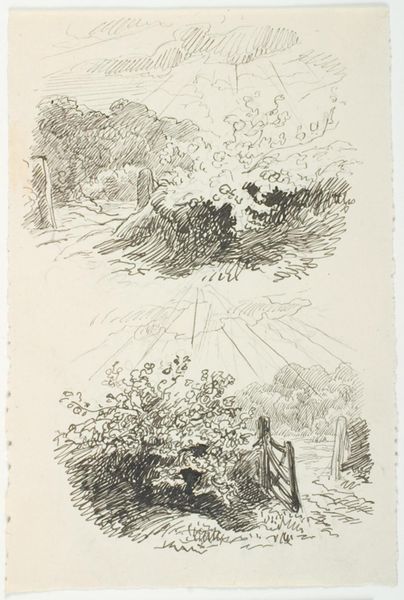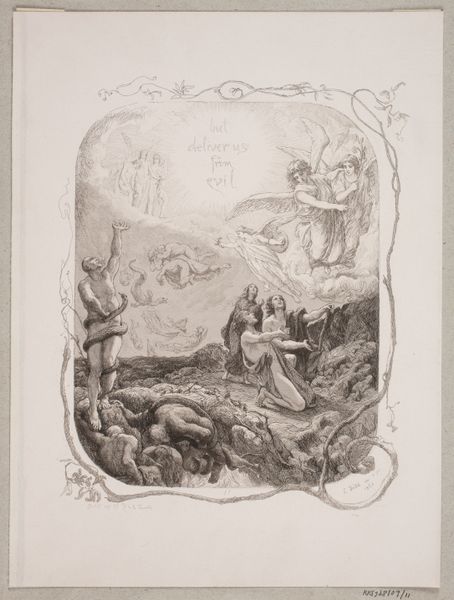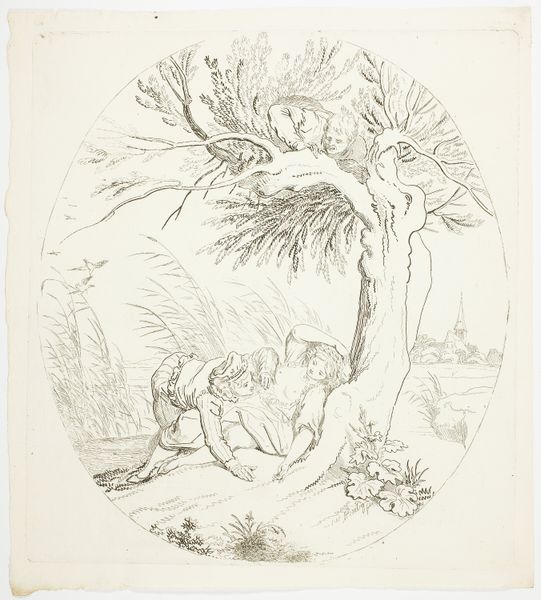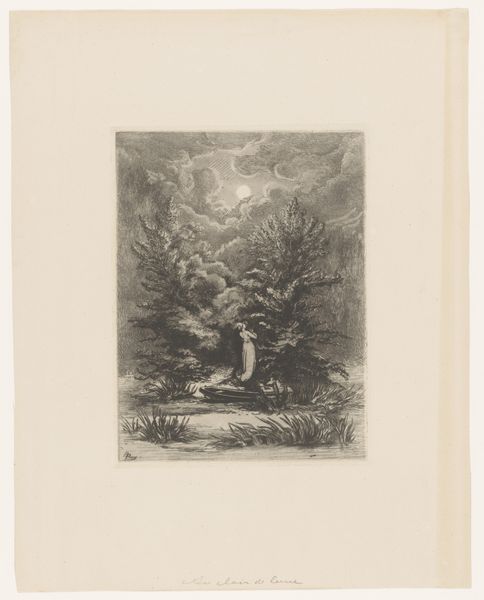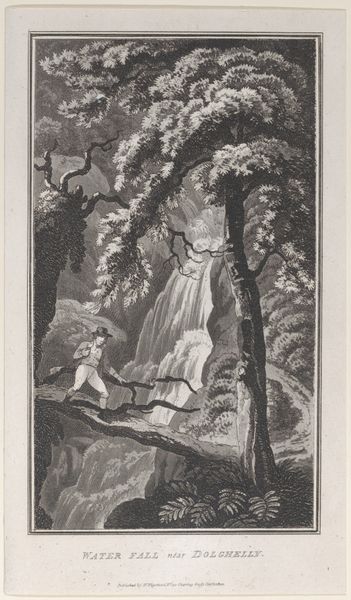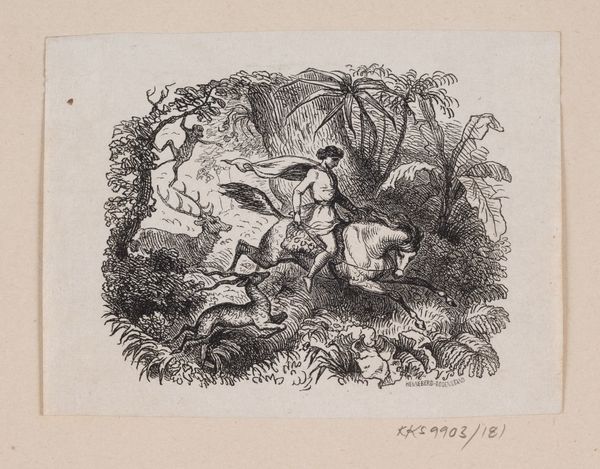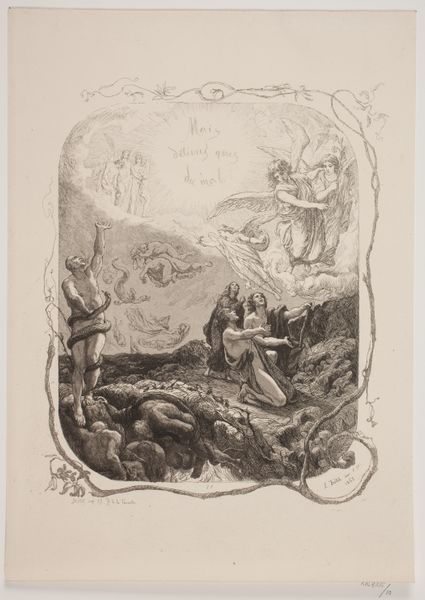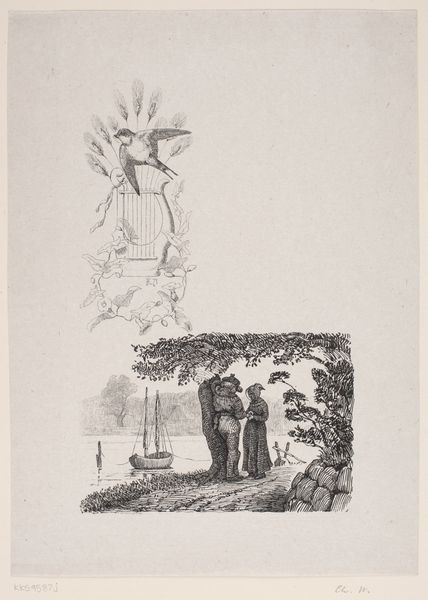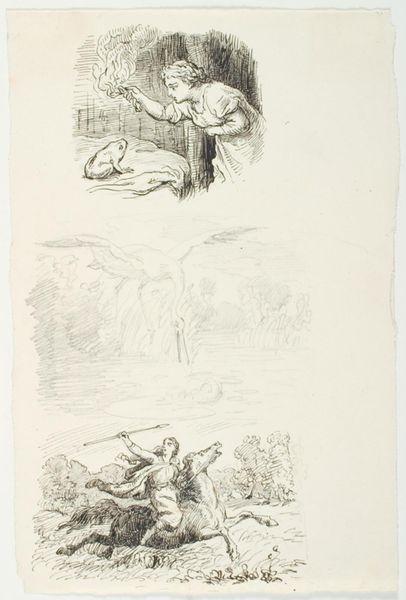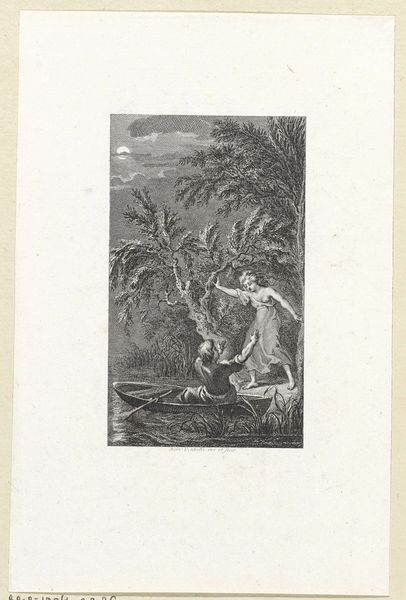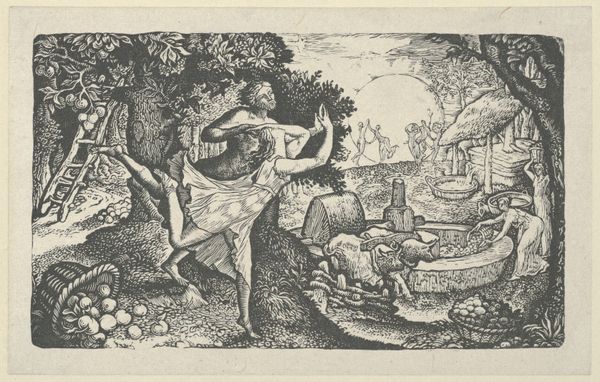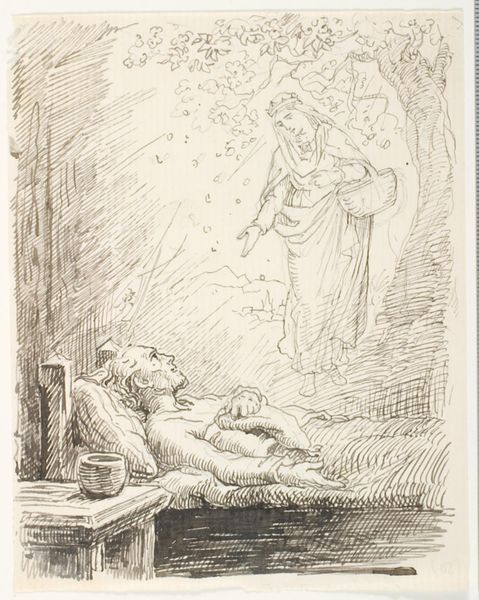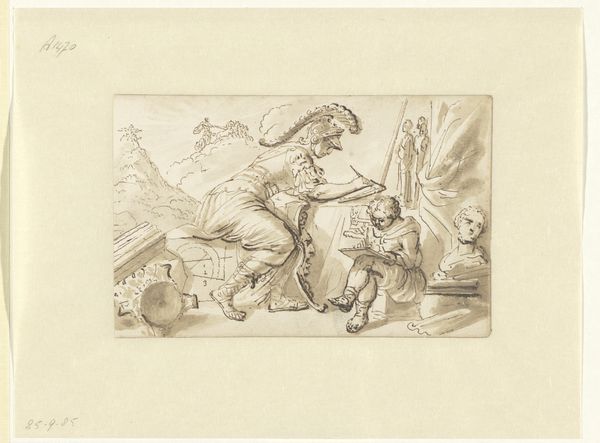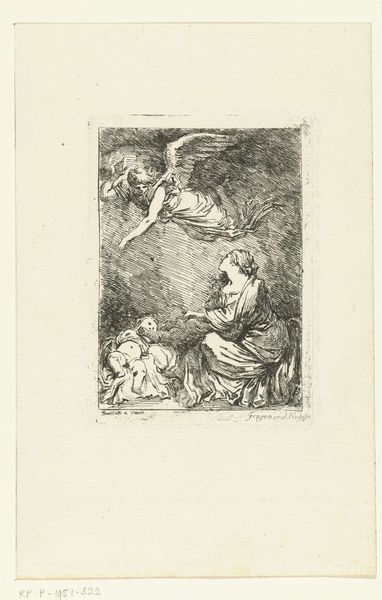
Illustrationsudkast til H.C. Andersen, "Dynd-Kongens Datter" 1869
0:00
0:00
Dimensions: 181 mm (height) x 120 mm (width) (billedmaal)
Lorenz Frølich's sketch for H.C. Andersen's "The Marsh King's Daughter" presents us with a scene steeped in transformation and primordial symbolism. Hovering above the nude figure of the daughter are swans, mythical creatures, carriers of souls and symbols of metamorphosis, dropping what appears to be snow flakes or eggs. This motif of a woman connected to swans echoes through history, from Leda and the Swan in Greek mythology, embodying themes of fate, and the intervention of divine or natural forces. The swan's association with purity and transformation is flipped; here, they are dropping the seed that will transform the daughter into something other. The daughter's raised hand suggests an acceptance of her fate, a kind of submission to the subconscious forces shaping her destiny. Consider the emotional weight of this transformation: the swan, a symbol of grace, contrasted with the unknown, potentially monstrous form. The image, with its stark contrasts, evokes a sense of primal fear and wonder, reminding us of the powerful, often unsettling nature of change and rebirth. The cyclical narrative of mythology reminds us that even in transformation, echoes of the past remain, resurfacing in new forms.
Comments
No comments
Be the first to comment and join the conversation on the ultimate creative platform.
